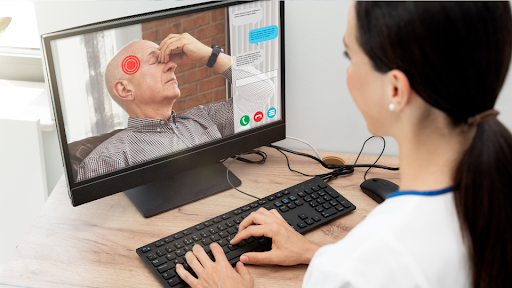When faced with sudden pain or discomfort, many individuals consider visiting an urgent care facility. These centers provide a convenient alternative to emergency rooms for non-life-threatening conditions. A common question that arises during such visits is whether urgent care can prescribe pain medication. This article delves into the capabilities of urgent care facilities regarding pain management, the types of medications they can prescribe, and when to seek alternative options.
 Understanding Urgent Care Facilities
Understanding Urgent Care Facilities
Urgent care centers are designed to handle a variety of medical issues that require immediate attention but are not severe enough to warrant a trip to the emergency room. They typically operate outside of regular office hours, making them accessible for patients who need prompt care. Services offered at urgent care include treatment for minor injuries, infections, and illnesses, as well as diagnostic tests. This flexibility is particularly beneficial for individuals with busy schedules or those who may not have a primary care physician readily available. Many urgent care facilities also offer walk-in services, eliminating the need for appointments and allowing patients to receive care at their convenience.
What Conditions Can Urgent Care Treat?
Urgent care centers are equipped to handle a wide range of conditions. Common ailments treated include:
While urgent care can address many issues, it is essential to understand the limitations of these facilities. For complex or chronic conditions, a primary care physician or specialist may be more appropriate. Additionally, urgent care centers often have the capability to perform certain diagnostic tests, such as X-rays and lab work, which can help in quickly determining the best course of treatment. This immediacy can be crucial for conditions that require timely intervention, such as fractures or severe infections, where delays could lead to complications.
The Role of Pain Management in Urgent Care
Pain management is a critical aspect of treatment in urgent care. Patients often arrive with varying levels of pain, whether from an injury, infection, or other medical condition. The ability of urgent care physicians to prescribe pain medication is vital in providing relief and facilitating recovery. This aspect of care not only addresses the physical discomfort but also plays a significant role in the overall patient experience, as managing pain effectively can lead to faster recovery times and improved patient satisfaction.
Urgent care providers can prescribe a range of pain medications, depending on the severity and nature of the pain. However, there are guidelines and protocols they must follow, particularly concerning controlled substances. In many cases, urgent care facilities will also provide advice on non-pharmaceutical pain relief methods, such as ice, rest, and elevation, which can be just as important in the management of pain. Furthermore, education on follow-up care and when to seek additional medical attention is often part of the treatment plan, ensuring that patients leave with a comprehensive understanding of their health needs.
Types of Pain Medications Prescribed by Urgent Care
When it comes to pain management, urgent care facilities can prescribe both over-the-counter and prescription medications. Understanding the types of medications available can help patients know what to expect during their visit.
Over-the-Counter Pain Relievers
For mild to moderate pain, urgent care physicians often recommend over-the-counter medications. Common options include:
These medications are effective for pain relief and are typically safe for most patients when taken as directed. They can help manage pain from headaches, minor injuries, and other common ailments. Additionally, it’s important to note that while these medications are readily available, patients should always consult with a healthcare provider if they have underlying health conditions or are taking other medications, as interactions can occur. For example, excessive use of ibuprofen can lead to gastrointestinal issues, and acetaminophen can be harmful to the liver if taken in high doses.
Prescription Pain Medications
In cases of moderate to severe pain, urgent care providers may prescribe stronger medications. This can include:
Opioids (such as hydrocodone or oxycodone) for severe pain
Muscle relaxants for spasms or strains
Topical analgesics for localized pain relief
While urgent care can prescribe these medications, they are more likely to do so for short-term use. Providers are cautious about prescribing opioids due to the potential for addiction and misuse. In addition, muscle relaxants may cause drowsiness, so patients are often advised to avoid driving or operating heavy machinery while taking them. Topical analgesics, on the other hand, can provide targeted relief with fewer systemic side effects, making them a popular choice for conditions like arthritis or localized muscle pain. It’s essential for patients to have open discussions with their healthcare providers about their pain levels and any concerns regarding medication use, as this can lead to more effective and safer pain management strategies tailored to individual needs.
When to Seek Alternatives
While urgent care can effectively manage many pain-related issues, there are instances when seeking alternative options is advisable. Understanding when to visit a different healthcare provider can ensure that patients receive the most appropriate care.
Chronic Pain Management
Patients suffering from chronic pain conditions, such as arthritis or fibromyalgia, may require ongoing treatment that urgent care cannot provide. In these cases, a primary care physician or pain management specialist is better suited to develop a comprehensive treatment plan.
Chronic pain management often involves a combination of medication, physical therapy, and lifestyle changes. These approaches require close monitoring and a tailored strategy that urgent care cannot offer. For instance, a pain management specialist may recommend specific exercises designed to strengthen muscles and improve flexibility, which can significantly alleviate discomfort over time. Additionally, they may explore alternative therapies, such as acupuncture or cognitive behavioral therapy, which can complement traditional treatments and help patients cope with the psychological aspects of chronic pain.
Emergency Situations
In cases of severe pain resulting from trauma, heart attack, or other life-threatening conditions, an emergency room visit is necessary. Urgent care facilities are not equipped to handle emergencies, and patients should seek immediate care in such situations.
Recognizing the signs of a potential emergency is crucial. For example, chest pain accompanied by shortness of breath or radiating pain to the arm may indicate a heart attack and requires urgent medical attention. Similarly, severe abdominal pain could signal appendicitis or other critical conditions. Understanding these symptoms can empower patients to act quickly and seek the appropriate level of care, potentially saving lives and preventing further complications.
Telehealth as an Alternative for Pain Management
In today's digital age, telehealth has emerged as a convenient option for patients seeking medical advice and treatment. Services like Doctronic provide access to AI-driven healthcare solutions, including pain management consultations. This can be particularly beneficial for those who may not have immediate access to urgent care or prefer the comfort of home. With the rise of chronic pain conditions, telehealth offers a lifeline for many who struggle to manage their symptoms effectively while balancing the demands of daily life.
 Benefits of Telehealth for Pain Management
Benefits of Telehealth for Pain Management
Telehealth offers several advantages for patients dealing with pain:
Accessibility: Patients can consult with healthcare providers from anywhere, eliminating travel time and wait times often associated with urgent care visits.
Convenience: Telehealth services are available 24/7, making it easier for patients to seek help when they need it most.
Personalized Care: AI-driven platforms, like Doctronic, provide personalized recommendations based on individual medical history and symptoms.
These benefits make telehealth an attractive option for those seeking pain management solutions without the need for an in-person visit. Furthermore, telehealth can facilitate ongoing monitoring of pain levels and treatment efficacy, allowing healthcare providers to make timely adjustments to a patient's care plan. This continuous feedback loop can lead to more effective pain management strategies, ultimately enhancing the quality of life for patients.
Additionally, telehealth can help bridge the gap for patients in rural or underserved areas where access to specialized pain management services may be limited. By connecting patients with experts who may be miles away, telehealth not only democratizes access to healthcare but also fosters a more collaborative approach to pain management. Patients can engage in discussions about their symptoms, treatment options, and lifestyle modifications in a supportive environment, which can empower them to take an active role in their health journey.
Pain Relief Starts with the Right Care
Urgent care facilities play a crucial role in managing pain for patients with immediate needs. They can prescribe both over-the-counter and prescription pain medications, depending on the severity of the condition. However, for chronic pain or emergency situations, alternative healthcare options may be more appropriate.
As healthcare continues to evolve, telehealth services like Doctronic offer innovative solutions for pain management. By leveraging AI technology, patients can receive timely, personalized care that meets their unique needs.
Ultimately, understanding the capabilities of urgent care and exploring telehealth options can empower patients to make informed decisions about their health and well-being.
Instant Answers. Real Doctors. One Platform
Why wait in line at urgent care when you can receive immediate, personalized medical advice from the comfort of your home? Doctronic, the #1 AI Doctor, is here to revolutionize your healthcare experience. With over 10 million users and growing, our AI-driven platform offers free, instant AI doctor visits that provide you with a diagnosis you can take to any doctor. Plus, for less than $40, you can have a telehealth video visit with our doctors anytime, anywhere in all 50 states. Experience faster, smarter, and more personal care with Doctronic's limitless patience and tailored recommendations. Skip the line. Talk to an AI Doctor Now, for free.



 Understanding Urgent Care Facilities
Understanding Urgent Care Facilities Benefits of Telehealth for Pain Management
Benefits of Telehealth for Pain Management